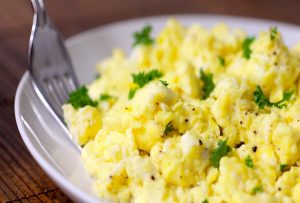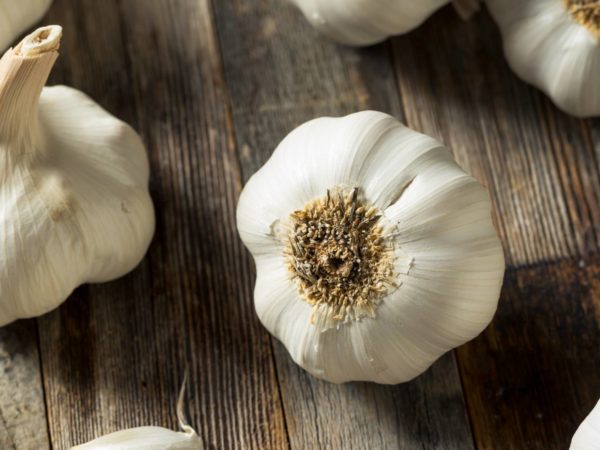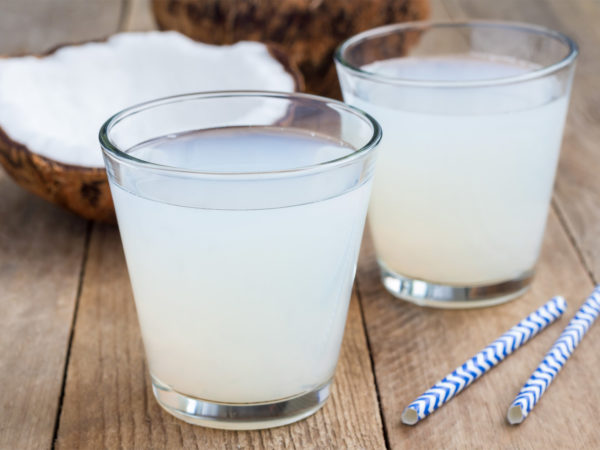How to Buy the Healthiest Eggs
Eggs are one of the healthiest and most versatile foods you can eat. They star in both savory and sweet dishes – from quiches and soufflés to cookies, brownies and cakes. More than 75 billon eggs are produced in the US each year.
But as is the truth with almost every other food… all eggs are not created equal.
Browsing the cold case at your local grocer, you’ll find a wide variety of egg options, including cage-free, organic, free-range, free-roaming, omega-3 enriched, pastured, and natural.
And while terms like “cage-free” and “organic” might conjure images of an idyllic farm with happy chickens pecking the earth for grubs, the truth is quite different.
In fact, 95% of eggs produced in the US are produced in “battery cages” -an industrial agricultural confinement system that is known for its inhumane conditions and rapid spread of disease.
Recommended: You Won’t Believe What Toxins Are Doing to Your Waistline!
Carton Talk: Unscrambling Egg Labels
Here are the six most common egg label claims and what they mean to your health.

Natural:
No standards have been set for the label claim of “natural”.
In fact, natural eggs can legally been produced using arsenic-laced and genetically-modified feed, and the laying hens can be given antibiotics and kept in battery cages.
“Natural” is the lowest rung on the coop.
Avoid eggs bearing this label.
Omega-3 Enriched:
Hens are fed a feed containing higher levels of omega-3 fats from flaxseed or other sources. This label says nothing regarding the conditions the hens lived in or if their feed contained toxins or GMOs.
Omega-3 enriched eggs cost roughly twice that of “natural” eggs for a small amount of this essential fat. Your best bet? Leave these eggs on the shelf and get your omega-3’s from clean-sourced wild fish and fish oil.
Cage-Free:
While cage-free eggs are not produced in battery cages, they are still produced in a confinement system. That means antibiotics are routinely administered and a diet containing arsenic and GMOs is the norm. There is also no third party certifier for “cage-free” eggs, so it is up to the consumer to trust the producer.
Verdict? Pass on these eggs.
Free-Range/Free-Roaming:
Eggs produced in a free-range or free-roaming environment do get to spend some time outdoors. However, no specific amount of time is set as a standard. There is also no independent organization that certifies producers.
This label does not address feed ingredients, so it is safe to assume that the conventional impurities (the same found in cage-free, omega-3 enriched and natural) are present.
Organic:
The USDA-certified label for “organic” eggs means that hens were not enclosed in battery cages. They were allowed time outdoors and fed organic feed. This also means the eggs should be free from pesticides, antibiotics, arsenic, GMOs and agricultural byproducts.
However, certified organic egg operations do permit inhumane practices such as debeaking and forced molting. While a healthier choice than the previously listed, these eggs are not ideal in terms of nutrients or ethical considerations.
Pastured:
Eggs bearing this label are produced from hens housed in portable shelters on green grass with fresh air and sunshine.
They are far superior to the other varieties. Compared to commercial or “factory” eggs, pastured eggs boast:
- Up to 10 times more omega-3
- Three to six times more vitamin D
- Two-thirds more vitamin A
- Almost 30 times more vitamin E
- Seven times more beta carotene
Ideally, pastured hens have an opportunity to consume a large amount of grubs and bugs – the healthy, native diet of chickens.
Some farmers supplement with grain. If buying locally, be sure to ask if grain is being fed to the chickens, and ensure it is organic feed to avoid exposure to agrichemicals.
Enjoy pastured eggs from a local farm you trust (check out eatwild.com or Weston A. Price for sources in your area) to get the most health benefits of this superfood.
Pair pastured eggs with grass-fed beef sausage sliders or sugar-free pastured bacon for a Paleo breakfast that will supercharge your body with nutrients and keep you pleasantly full until lunch.
Recommended: What protein does to muscle loss




Good stuff